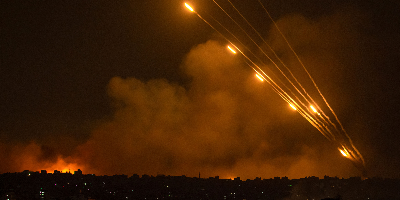1 ene 1685 año - Article illustrates the widely varying interpretations of Muslim writings on the treatment of civilians, and who is a combatant. Two contrasting examples below.
Descripción:
Can civilians be targeted?Specific prohibitions on the methods of warfare were given by the Prophet and the first Caliphs (rulers of the Muslim community) to Muslim warriors as they went into battle.
Before departing for the conquest of the Levant, Caliph Abu Bakr told his warriors: “When you meet your enemies in the fight, behave yourself as befits good Muslims…. If Allah gives you victory, do not abuse your advantages and beware not to stain your swords with the blood of one who yields, neither you touch the children, the women, nor the infirm, also men, whom you may find among your enemies.”
However, as mentioned above, scholars disagreed over whether disbelievers could be killed simply for their disbelief or only if they posed a danger to Muslims.
Followers of the former school of thought justified the killing even of women and children disbelievers who refused to either convert to Islam or live under Muslim rule and pay a tax, citing a verse from the Koran: “When the sacred months have passed, slay the idolaters wherever you find them” (9:5). The Prophet is also reported to have said: “I have been commanded to fight mankind until they say ‘There is no God but Allah’.”....
Who is considered a civilian?
Generally speaking, even in the neo-classical interpretation, women, children, peasants, and religious or medical personnel cannot be targeted.
However, civilians can lose their protected status if they take part in the fighting. As in IHL, the definition of direct participation in hostilities (DPH) is hazy.
“Once they carry weapons for fighting, or contribute intelligence, war strategies or suggestions to the army, their status changes from civilians to combatants,” says a 2011 article by Malaysian professors, published in the International Journal of Humanities and Social Science.
According to more extreme interpretations, supporting the enemy even by opinion, propaganda or moral support makes someone a combatant.
How is Islamic law interpreted?
"Islamic law should be understood as a field of debate and disagreement,” says March. “There is usually no single Islamic position on a question.” Rather, the reasoning provided to justify one answer among the range of answers is what gives it more or less credibility, as judged by the Ummah, or Muslim community. The process of interpretation of these sources is called fiqh, or Islamic jurisprudence.
Still, many Muslim fighters misinterpret the Koran, says one Palestinian aid worker who has trained armed groups across the Muslim world on international humanitarian law (IHL), because they do not understand the context in which a particular verse was revealed or because they adopt only the parts of it that suit them.
Interpretations also differ over time. “The way the world was conceived in classical times is very different than the way modern jurists frame it,” says Mohammad Fadel of the University of Toronto’s Faculty of Law. As such, there is debate between those who stick to medieval, literalist interpretations of the jurisprudence, and those who aim to re-interpret it in line with the Islamic scholarly tradition of renewal.
There is much theological debate over whether specific verses of the Koran apply to the Prophet’s time only or to all Muslims forever; and whether they are meant literally or figuratively.
But for many scholars, medieval Islamic jurisprudence has been made obsolete by the Geneva Conventions, which Muslim countries have ratified.
Still, even when legal norms are fairly undisputed, exceptions exist. For example, an illegal act can be permissible under necessity or if it is in the public benefit. Muslims are permitted to eat pork, for example, if dying of starvation.
Finally, there is also a regional dimension – some areas are simply more conservative than others. With states licensing imams, governments are also dabbling in jurisprudence and asserting political control.
In a situation of invasion or occupation, all those associated with the effort, even if not carrying arms, are considered legitimate targets and all Muslim civilians are under obligation to fight to defend the homeland....
Añadido al timeline:
fecha:
1 ene 1685 año
Ahora mismo
~ 340 years ago
